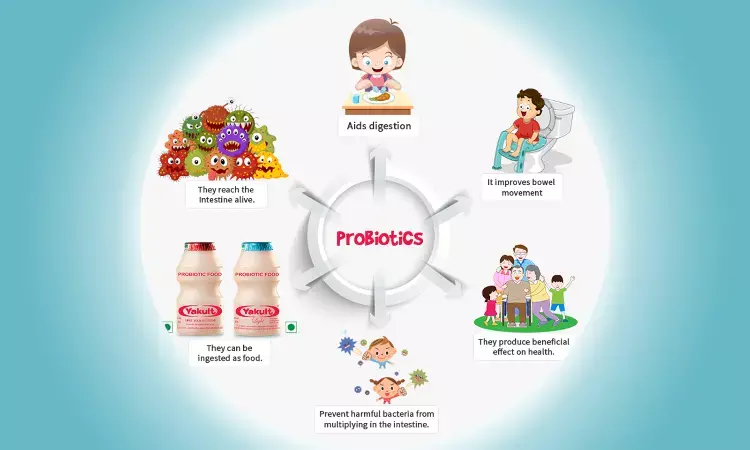- Home
- Medical news & Guidelines
- Anesthesiology
- Cardiology and CTVS
- Critical Care
- Dentistry
- Dermatology
- Diabetes and Endocrinology
- ENT
- Gastroenterology
- Medicine
- Nephrology
- Neurology
- Obstretics-Gynaecology
- Oncology
- Ophthalmology
- Orthopaedics
- Pediatrics-Neonatology
- Psychiatry
- Pulmonology
- Radiology
- Surgery
- Urology
- Laboratory Medicine
- Diet
- Nursing
- Paramedical
- Physiotherapy
- Health news
- Fact Check
- Bone Health Fact Check
- Brain Health Fact Check
- Cancer Related Fact Check
- Child Care Fact Check
- Dental and oral health fact check
- Diabetes and metabolic health fact check
- Diet and Nutrition Fact Check
- Eye and ENT Care Fact Check
- Fitness fact check
- Gut health fact check
- Heart health fact check
- Kidney health fact check
- Medical education fact check
- Men's health fact check
- Respiratory fact check
- Skin and hair care fact check
- Vaccine and Immunization fact check
- Women's health fact check
- AYUSH
- State News
- Andaman and Nicobar Islands
- Andhra Pradesh
- Arunachal Pradesh
- Assam
- Bihar
- Chandigarh
- Chattisgarh
- Dadra and Nagar Haveli
- Daman and Diu
- Delhi
- Goa
- Gujarat
- Haryana
- Himachal Pradesh
- Jammu & Kashmir
- Jharkhand
- Karnataka
- Kerala
- Ladakh
- Lakshadweep
- Madhya Pradesh
- Maharashtra
- Manipur
- Meghalaya
- Mizoram
- Nagaland
- Odisha
- Puducherry
- Punjab
- Rajasthan
- Sikkim
- Tamil Nadu
- Telangana
- Tripura
- Uttar Pradesh
- Uttrakhand
- West Bengal
- Medical Education
- Industry
Homemade curd having probiotic bacteria helps prevent dental caries: Study

According to recent research published in the Journal of Indian Association of Public Health Dentistry, investigators have observed that homemade curds have a probiotic effect on both aerobic and anaerobic organisms of dental plaque.
Probiotics are live microorganisms having the potential to convert a dysbiotic bacterial environment into a healthy one. To date, probiotic bacteria have been used as various formulations like milk, yogurt, tablets, chewing gums, controlled releasing medical devices, and also as mouth rinses. Such bacteria are generally regarded as safe because they can reside in the human body causing no harm and on the other hand, they are the key microorganisms in milk fermentation and food preservation.
Curd being a common dietary constituent of the Indian population is readily available, inexpensive, and can be used in several different combinations that are acceptable to the pediatric age group. Daily consumption of this archetypical food seems to be the most natural way to ingest probiotic bacteria.
Therefore, Varsha Manoharan and associates from the Departments of Public Health Dentistry, KVG Dental College and Hospital, Sullia, Karnataka, India conducted the present study to assess the quantitative and qualitative changes in dental plaque among schoolchildren following short‑term consumption of probiotic homemade curd.
A total of 30 schoolchildren were enrolled in this randomized controlled trial. Out of the total sample, 15 participants were divided into groups. The participants in the intervention group were provided with one cup of freshly prepared homemade curd for a period of 30 days. An evaluation was done at baseline, after 30 days, and after a washout period of 14 days which involved both quantitative and qualitative (Streptococcus mutans, Lactobacilli, and anaerobic bacterial counts in colony‑forming units [CFUs]/ml) analysis of dental plaque.
The following observations were noted-
- A statistically significant difference was not observed for quantitative changes in mean plaque score among the interventional and control groups at various stages of evaluation.
- However, qualitative analysis after 30 days yielded a significant reduction in the number of microbial CFUs of S. mutans, Lactobacillus, and anaerobic bacteria among the intervention group.
- Gradual recolonization of microorganisms was observed following the cessation of curds.
"With an expanding worldwide issue of antibiotic resistance, adding to inadequate treatment of microbial infections, probiotic bacteria in homemade curd by means of natural therapy seems to be an inventive method for the aversion of dental caries. Regular intake of homemade curd containing probiotic bacteria can be considered as a reasonable, simple, and safe strategy for preventing dental caries", the authors concluded.
Dr. Nandita Mohan is a practicing pediatric dentist with more than 5 years of clinical work experience. Along with this, she is equally interested in keeping herself up to date about the latest developments in the field of medicine and dentistry which is the driving force for her to be in association with Medical Dialogues. She also has her name attached with many publications; both national and international. She has pursued her BDS from Rajiv Gandhi University of Health Sciences, Bangalore and later went to enter her dream specialty (MDS) in the Department of Pedodontics and Preventive Dentistry from Pt. B.D. Sharma University of Health Sciences. Through all the years of experience, her core interest in learning something new has never stopped. She can be contacted at editorial@medicaldialogues.in. Contact no. 011-43720751
Dr Kamal Kant Kohli-MBBS, DTCD- a chest specialist with more than 30 years of practice and a flair for writing clinical articles, Dr Kamal Kant Kohli joined Medical Dialogues as a Chief Editor of Medical News. Besides writing articles, as an editor, he proofreads and verifies all the medical content published on Medical Dialogues including those coming from journals, studies,medical conferences,guidelines etc. Email: drkohli@medicaldialogues.in. Contact no. 011-43720751


